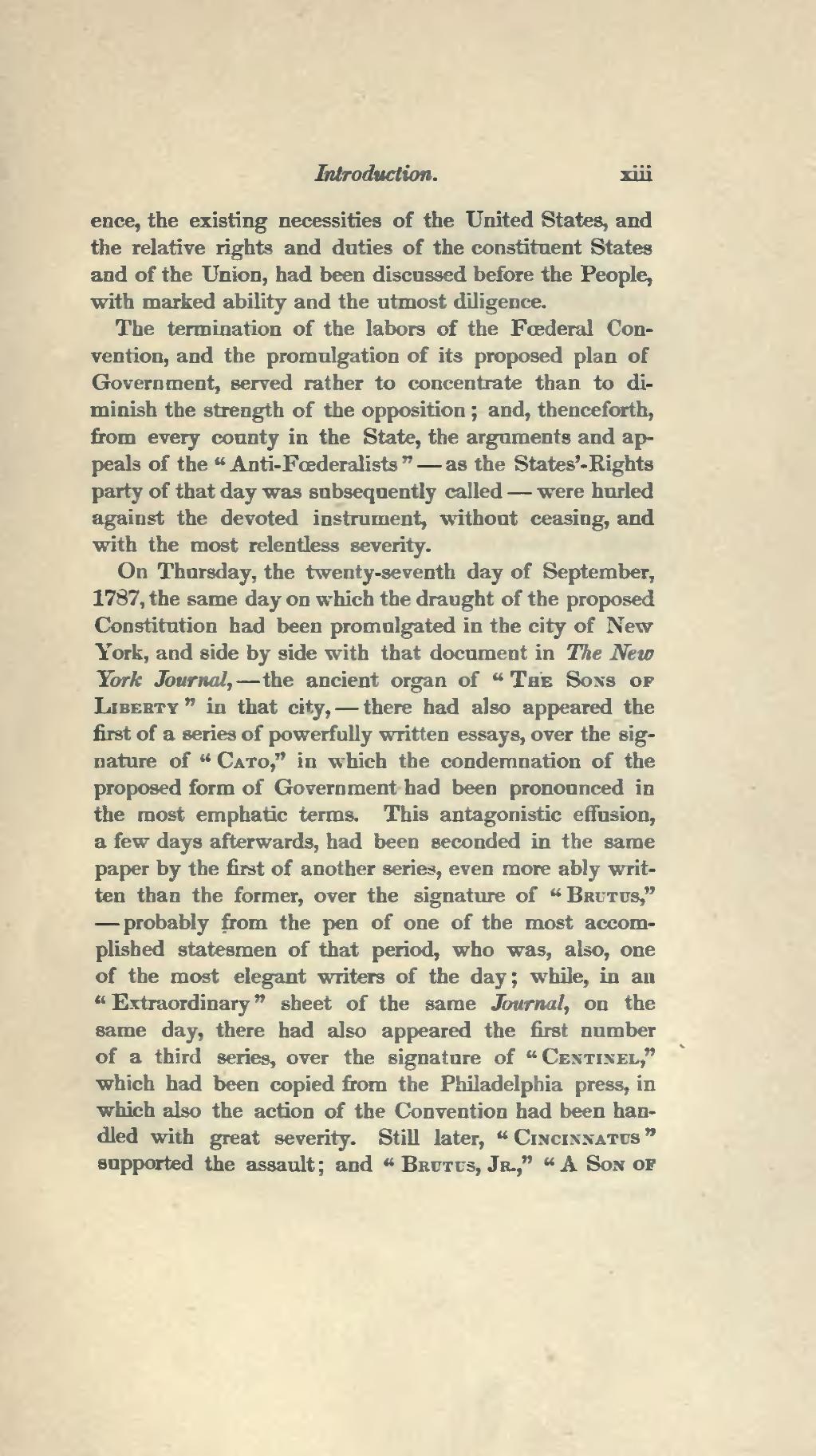ence, the existing necessities of the United States, and the relative rights and duties of the constituent States and of the Union, had been discussed before the People, with marked ability and the utmost diligence.
The termination of the labors of the Fœderal Convention, and the promulgation of its proposed plan of Government, served rather to concentrate than to diminish the strength of the opposition; and, thenceforth, from every county in the State, the arguments and appeals of the "Anti-Fœderalists"—as the States'-Rights party of that day was subsequently called—were hurled against the devoted instrument, without ceasing, and with the most relentless severity.
On Thursday, the twenty-seventh day of September, 1787, the same day on which the draught of the proposed Constitution had been promulgated in the city of New York, and side by side with that document in The New York Journal,—the ancient organ of "The Sons of Liberty" in that city,—there had also appeared the first of a series of powerfully written essays, over the signature of "Cato," in which the condemnation of the proposed form of Government had been pronounced in the most emphatic terms. This antagonistic effusion, a few days afterwards, had been seconded in the same paper by the first of another series, even more ably written than the former, over the signature of "Brutus,"—probably from the pen of one of the most accomplished statesmen of that period, who was, also, one of the most elegant writers of the day; while, in an "Extraordinary" sheet of the same Journal, on the same day, there had also appeared the first number of a third series, over the signature of "Centinel," which had been copied from the Philadelphia press, in which also the action of the Convention had been handled with great severity. Still later, "Cincinnatus" supported the assault; and Brutus, Jr.," "A Son of

